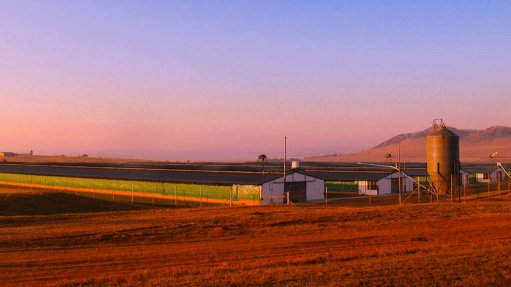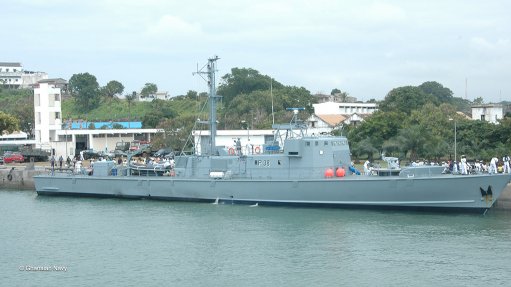Succession drama grips commodity trading’s billionaire factories
Trafigura Group has fired the starting gun on an era of upheaval at the top of the commodity trading world, with some of the biggest players preparing a new generation of leaders at a moment of heightened scrutiny for the industry.
Trafigura, a leading oil and metals trader, on Friday announced that two of its top executives would retire, leaving only CEO Jeremy Weir still in his position out of the trio who have run the company for the past decade.
People familiar with the matter say that Weir himself is also planning to seek a successor at some point in the not-too-distant future, probably in the first instance by anointing a new CEO and retaining the role of chairman — much as his mentor and company founder Claude Dauphin did a decade ago.
Trafigura’s head of gas and power Richard Holtum is currently in pole position for the CEO role, said the people, who asked not to be identified discussing private information. They cautioned that nothing is set in stone and the thinking could still change.
Trafigura is not alone among the major commodity traders in preparing a new generation for leadership, in an industry that has become a billionaire factory thanks to a stellar period of profits driven by wild moves in prices. (Many of the biggest companies, including Trafigura itself, are owned by their top employees who benefit directly when earnings soar.)
Mercuria Energy Group has been hiring a string of heavy hitters from around the commodities industry who are expected to form part of the next generation of leadership, according to people close to the company. Gunvor Group's CEO and majority owner last year appointed his son to the board and expressed a desire that his family retain control of the trading house.
For the companies that dominate the industry, management changes are rare and in some cases unprecedented. And the maneuvers come at a time when commodity trading houses have never been more profitable or higher profile.
Profits across the industry surpassed $100-billion for the second year running, according to consultancy Oliver Wyman, double what they were in the pre-pandemic era, as Russia’s full-scale invasion of Ukraine drove dramatic moves in everything from natural gas to nickel.
The trading companies are also attracting greater scrutiny from governments — for their potential role as guarantors of energy security, but also for their historical wrongdoing, after a series of recent cases that have shone a light on the industry’s corrupt underbelly.
It’s a moment of opportunity but also one of jeopardy.
“Commodity trading companies’ success is highly tied up with their succession system,” said Jacques Erni, the chief financial officer of mid-sized energy trader BB Energy and a former CFO of Gunvor. “Traders like to work for an organization where the value that they create ultimately comes back to them as shareholders.”
BILLIONAIRE BOSSES
Succession can be a particularly challenging issue in companies like Mercuria and Gunvor, which are still owned and run by the men who built them into major global players. The two companies have already experienced several false starts on the path to a future without their billionaire bosses.
Bloomberg reported last month that Mercuria deputy CEO Magid Shenouda, who had long been seen as the heir apparent to co-founders Marco Dunand and Daniel Jaeggi, is retiring from the company.
Gunvor CEO and co-founder Torbjörn Törnqvist at one point planned to reduce his stake to just 50% over time by selling shares to his employees, according to a bank report dated May 2018. At other moments he held talks with Algeria’s Sonatrach, UAE’s Adnoc and even other trading rivals about buying a stake or the entirety of Gunvor.
Today, he owns 84% of the company and insists he’s not going anywhere, instead telling the Financial Times last year that it would be “best” for his family to retain control.
Dunand and Jaeggi, meanwhile, have been hiring some of commodity trading’s highest profile figures, with recent targets including Nick O’Kane from Macquarie Group and Steve Hill from Shell.
They’re also talking to Kostas Bintas, the former co-head of metals at Trafigura, who has discussed joining Mercuria as well as several other large energy trading firms with a team of traders.
Dunand and Jaeggi now own over 50% of the company, the people said. Dunand has stopped running a day-to-day trading book at the firm, although Jaeggi still runs several strategies, according to a person familiar with the matter.
HOPES DASHED
Yet succession can also cause strains at companies without a dominant founder. At Trafigura, where Dauphin anointed a trio of executives to steer the company before he died in 2015, the past year has been marked by jostling for position ahead of the expected transition, according to numerous current and former employees.
One section of Trafigura’s staff had expected Hadi Hallouche, who runs the company’s fuel retail business, to be the next CEO. But his hopes appeared to be dashed by a leadership reshuffle announced last September, when he was dropped from the management board.
Current CEO Weir has been supporting the idea of Holtum as his successor, and last November took him to meet major Chinese clients on the sidelines of a copper conference in Shanghai.
Still, nothing is certain in the cut-throat world of trading. Other powerful figures within Trafigura after two shake-ups in eight months include Ben Luckock, the head of oil.
While the record profits of the past few years give the trading companies a healthy cushion of cash to pay out departing executives and weather any challenging moments, they also mean that there are billionaires and many $100-millionaires in the top ranks of the big companies. That means that candidates who miss out on the top job may not feel the need to stick around.
Another challenge is that profits are slowing this year after a record performances in 2022 and 2023, according to industry executives.
“Everyone wants to continue the legacy after things that have been great,” says Adam Perkins, a consultant and commodity specialist at Oliver Wyman. “But I don’t think it’s going to be an easy job taking over the helm of these organizations, especially since they’re coming off good years.”
One fact is starkly clear: the next wave of leadership contenders across the industry are uniformly male with barely any exceptions, as commodity trading continues to lag in both gender and racial diversity.
DIFFERENT CLIMATE
Among other large trading companies, Glencore’s long-time CEO Ivan Glasenberg passed on the baton to Gary Nagle in 2021, but the company faces the prospect of further management flux in the next few years if it goes ahead with a plan to split itself into two companies, one focusing on coal and the other on metals.
And Vitol Group, the largest independent oil trader, added two new members to bolster its management board at the start of this year — although there’s no sign that CEO Russell Hardy, who has been in his role since 2018, has any imminent plans to step back.
“With the likes of Jeremy Weir, Ivan Glasenberg and Marco Dunand we have already had a different breed of leaders — devising strategies that are probably more sophisticated than their predecessors and dealing with much more visibility in the public,” said Jean-Francois Lambert, a consultant and former commodity banker.
“The challenge for incoming leaders is can they cope with the transformation of the world, and maintain success in these high seas and more uncertain times?”
Comments
Press Office
Announcements
What's On
Subscribe to improve your user experience...
Option 1 (equivalent of R125 a month):
Receive a weekly copy of Creamer Media's Engineering News & Mining Weekly magazine
(print copy for those in South Africa and e-magazine for those outside of South Africa)
Receive daily email newsletters
Access to full search results
Access archive of magazine back copies
Access to Projects in Progress
Access to ONE Research Report of your choice in PDF format
Option 2 (equivalent of R375 a month):
All benefits from Option 1
PLUS
Access to Creamer Media's Research Channel Africa for ALL Research Reports, in PDF format, on various industrial and mining sectors
including Electricity; Water; Energy Transition; Hydrogen; Roads, Rail and Ports; Coal; Gold; Platinum; Battery Metals; etc.
Already a subscriber?
Forgotten your password?
Receive weekly copy of Creamer Media's Engineering News & Mining Weekly magazine (print copy for those in South Africa and e-magazine for those outside of South Africa)
➕
Recieve daily email newsletters
➕
Access to full search results
➕
Access archive of magazine back copies
➕
Access to Projects in Progress
➕
Access to ONE Research Report of your choice in PDF format
RESEARCH CHANNEL AFRICA
R4500 (equivalent of R375 a month)
SUBSCRIBEAll benefits from Option 1
➕
Access to Creamer Media's Research Channel Africa for ALL Research Reports on various industrial and mining sectors, in PDF format, including on:
Electricity
➕
Water
➕
Energy Transition
➕
Hydrogen
➕
Roads, Rail and Ports
➕
Coal
➕
Gold
➕
Platinum
➕
Battery Metals
➕
etc.
Receive all benefits from Option 1 or Option 2 delivered to numerous people at your company
➕
Multiple User names and Passwords for simultaneous log-ins
➕
Intranet integration access to all in your organisation





















